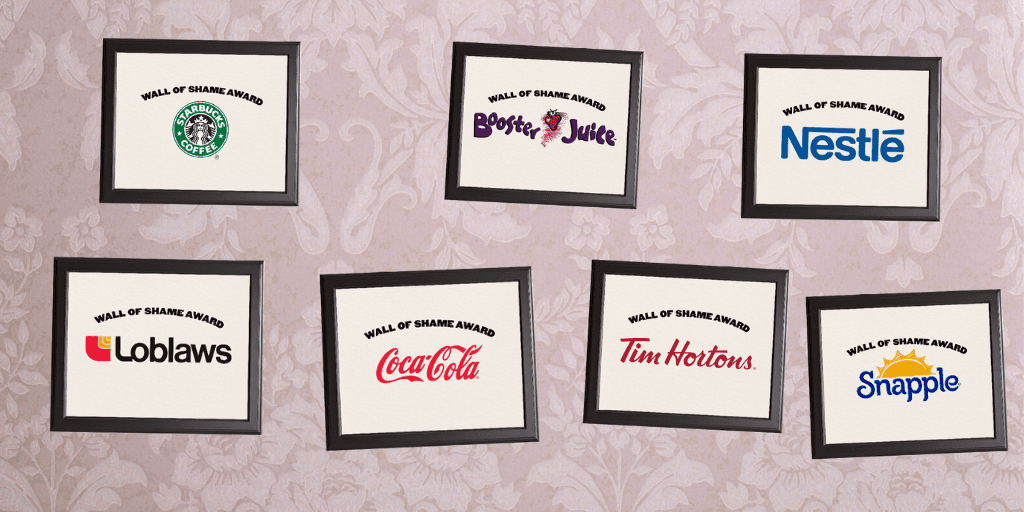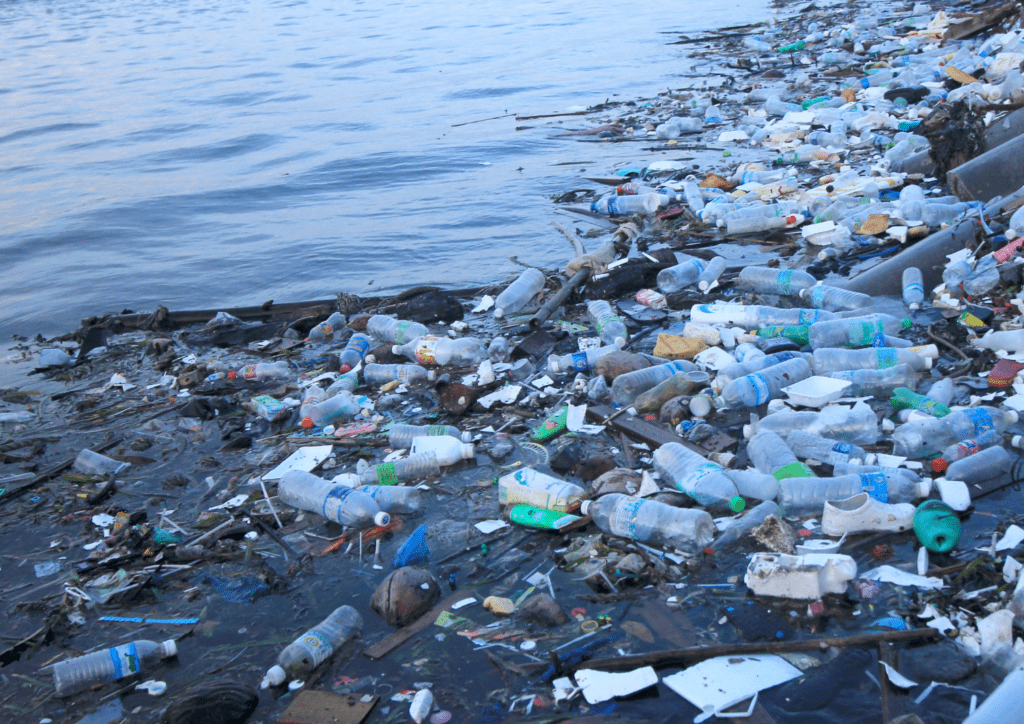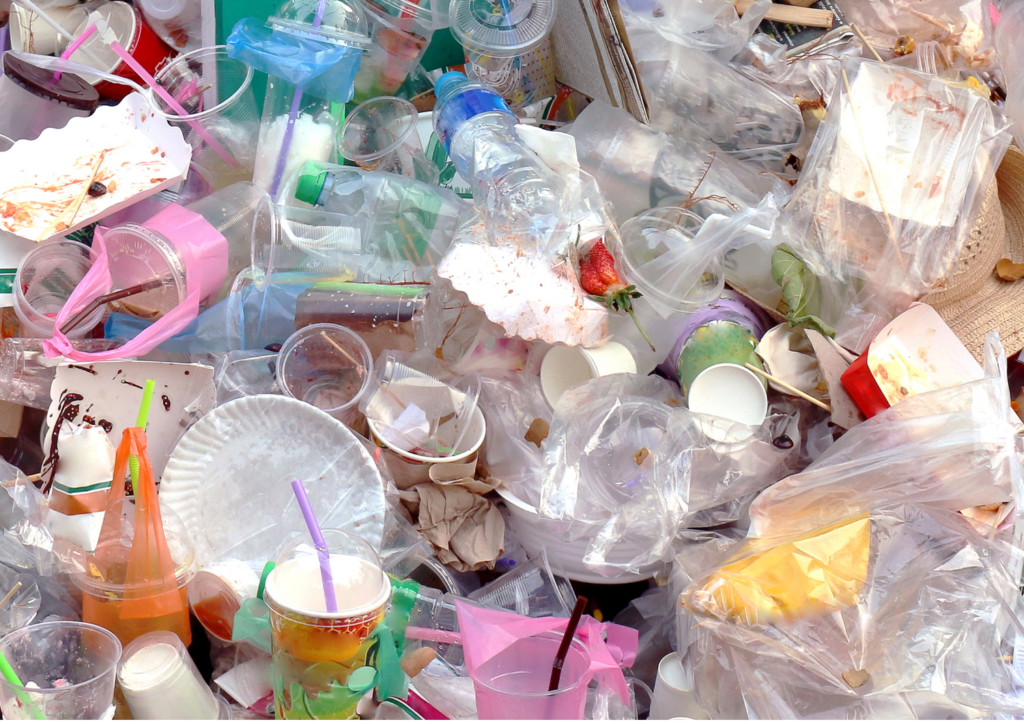We continuously hear commitments from companies to end plastic waste, make products more recyclable, and to eliminate single-use plastic items like plastic straws. But how serious are these companies and their commitments?
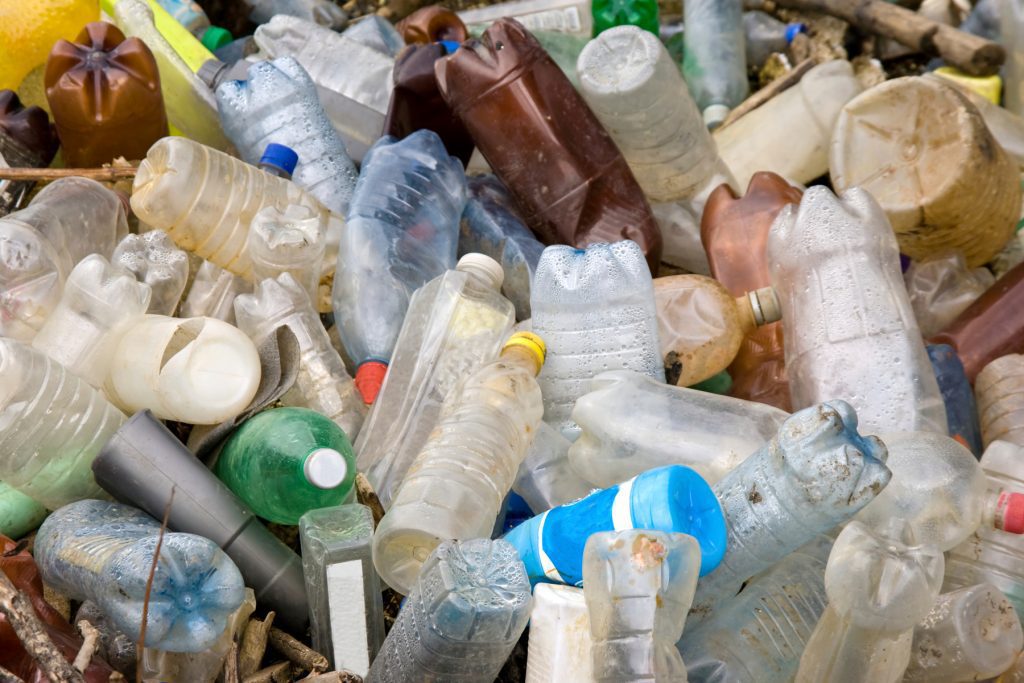
We started to fact check them and it turns out that some of these commitments are just greenwashing. Some companies aren’t even really making an effort to reduce their plastics footprint at all. So we’re calling them out on our new Plastic Wall of Shame. We’re also sharing solutions that the companies can implement to actually reduce their use of single-use plastics.
See the first seven companies on the wall.
Who are the first inductees on the Wall of Shame?
We’ve kicked off the wall with seven inductees. Here are the companies and why they were included:
1. Tim Hortons
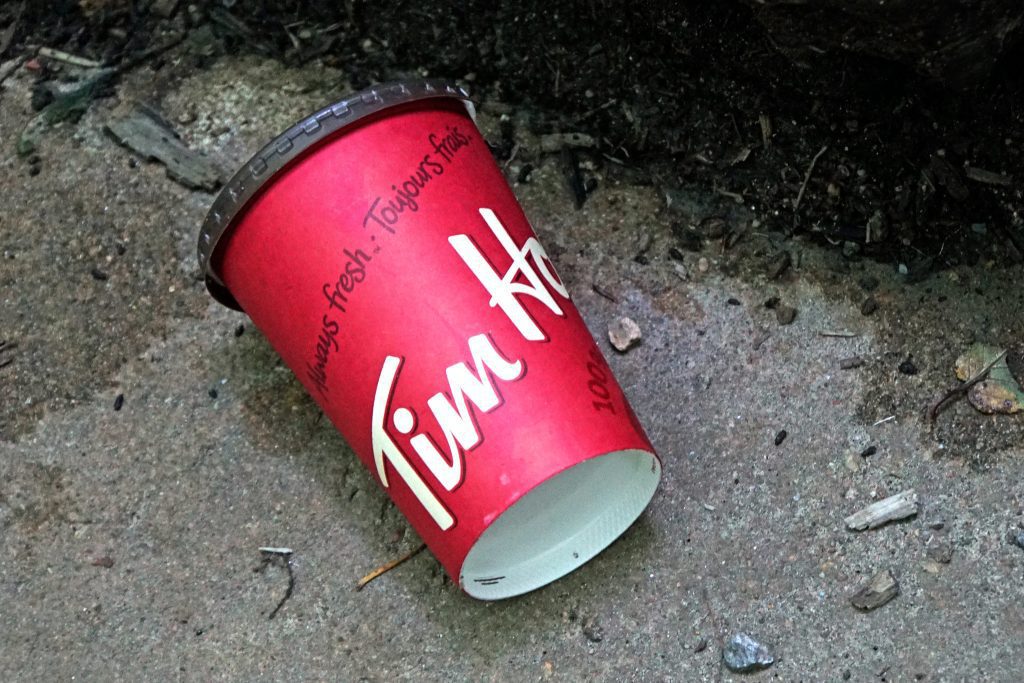
Tim Hortons is on the wall for designing new lids that contain 59 per cent more plastic than its previous ones, instead of focusing on reducing plastic waste. Tim Hortons is the second biggest generator of plastic litter in Canada, according to a 2019 brand audit by several environmental NGOs.
2. Starbucks
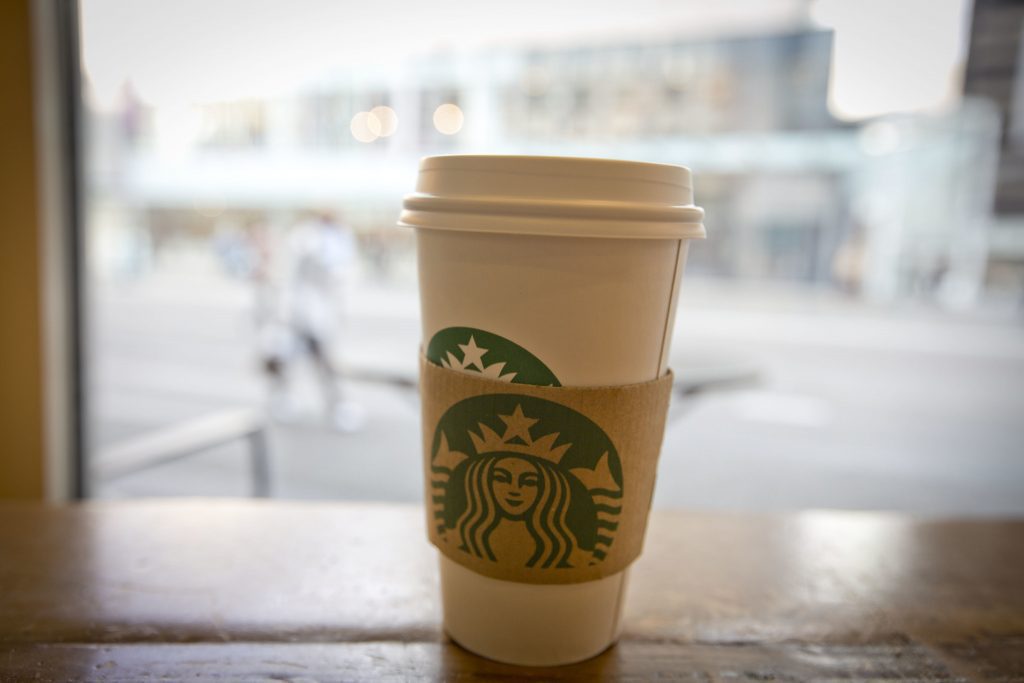
Starbucks in on the wall for designing new plastic lids to substitute for straws and investing in compostable cups that end up in the garbage, instead of implementing real solutions to reduce plastic waste. Good news though: Soon after we launched the wall, the company announced new commitments to reducing single-use plastics.
3. Nestlé
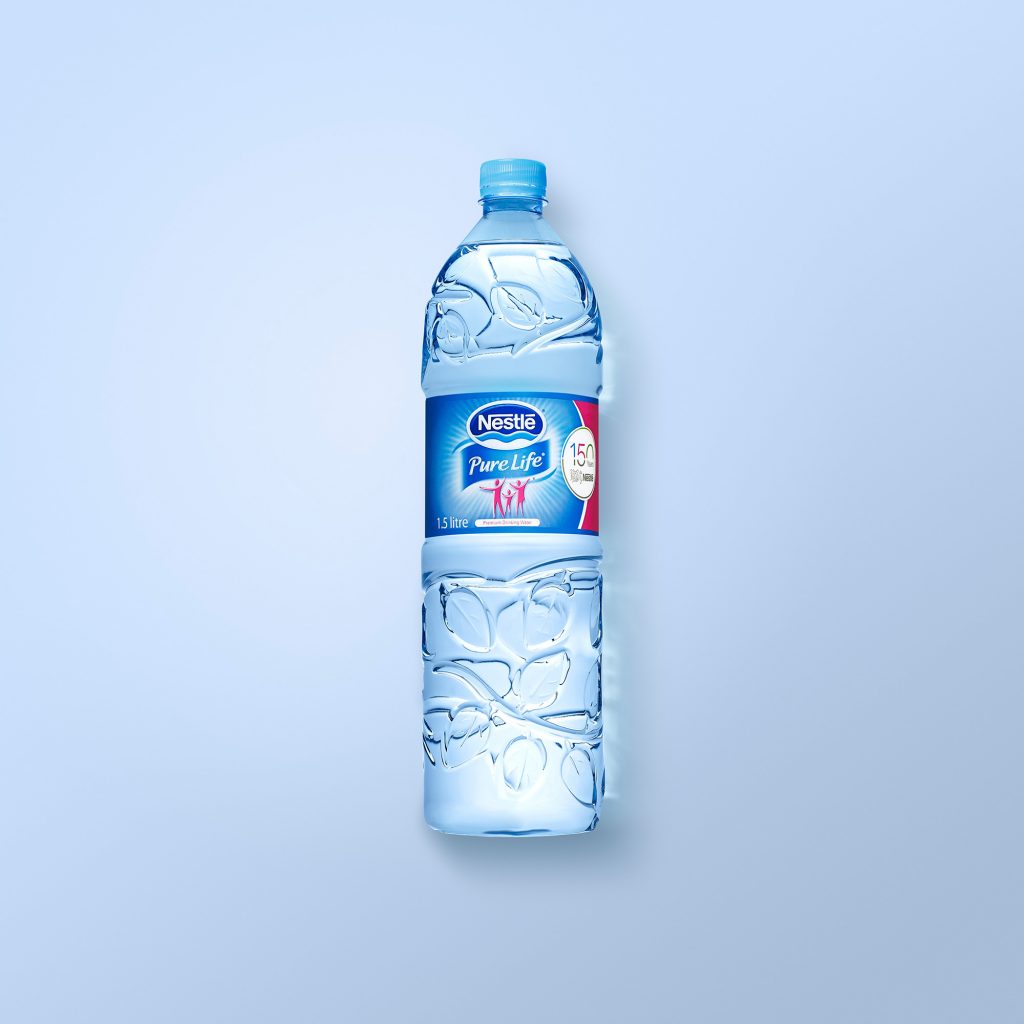
Nestlé is on the wall for being the biggest plastic polluter in Canada, according to a brand audit by environmental NGOs in 2019. It also refuses to support collection systems that stop plastic from entering the environment, including a deposit return program for plastic bottles in Ontario.
4. Coca-Cola
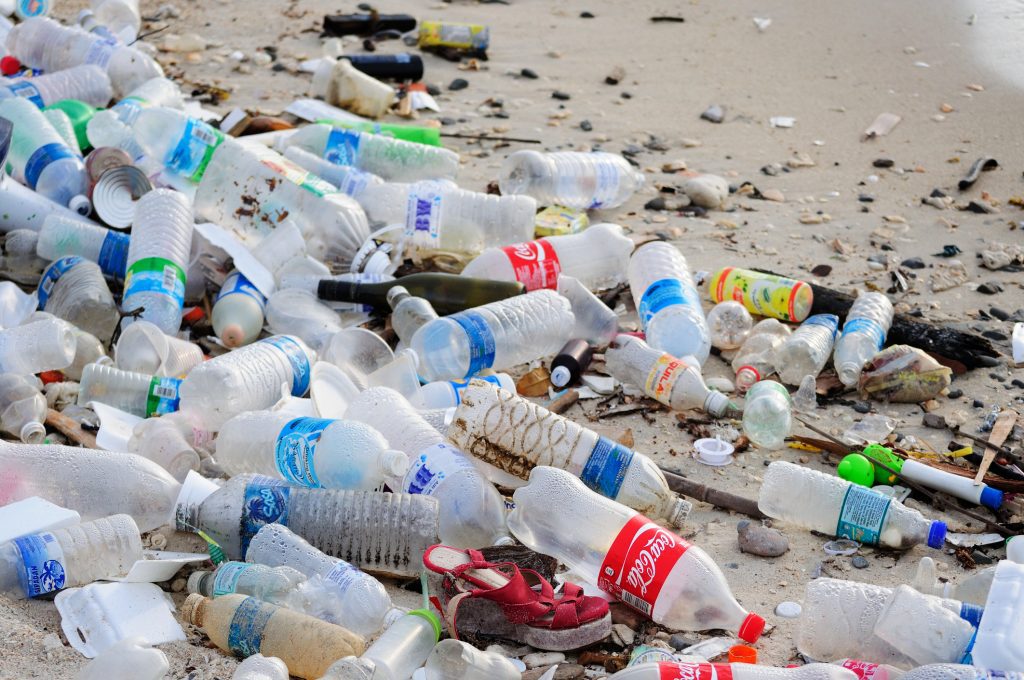
Coca-Cola is on the wall for failing to support a deposit return system that would collect and recycle 90 per cent of the plastic containers it sells. It also won’t commit to using reusable options for its products. Coca-Cola is the biggest plastic generator in the world as it places about two million tonnes of plastic on the market every year.
5. Snapple
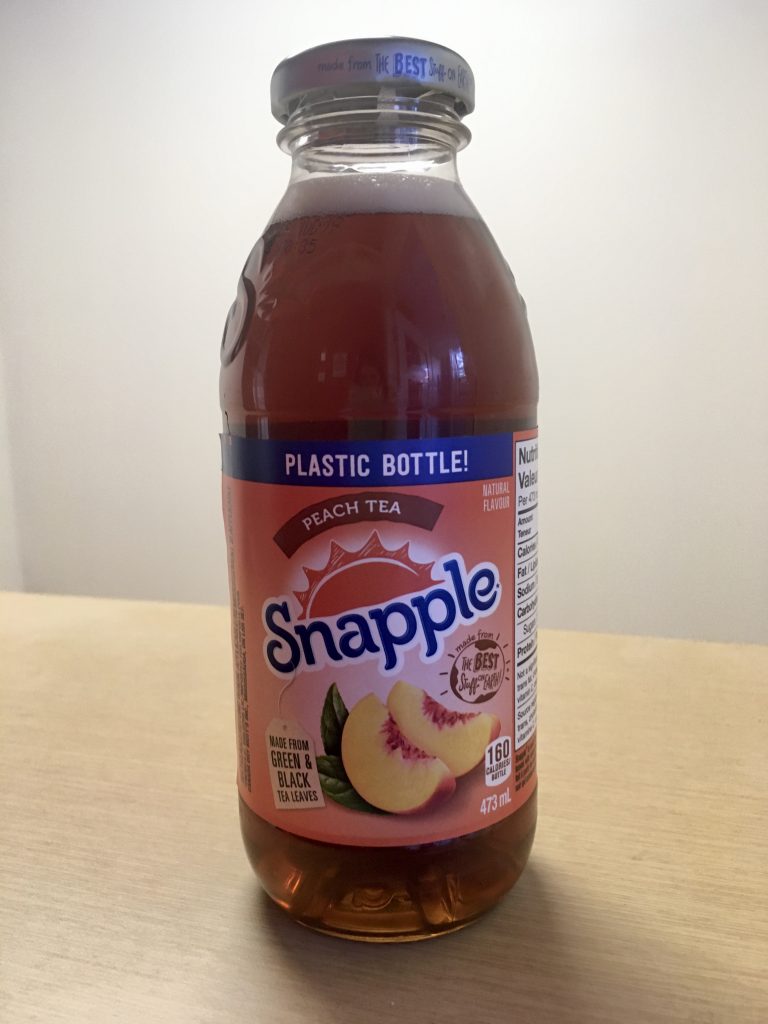
Snapple is on the wall for recently changing its iconic bottles from glass to plastic in the midst of a plastic pollution crisis.
6. Loblaws

Loblaws is on the wall for failing to significantly reduce plastic generation from its operations and brands while promoting greenwashing solutions like its compostable PC coffee pods. These pods aren’t accepted in municipal green bins, therefore ending up in landfills.
7. Booster Juice
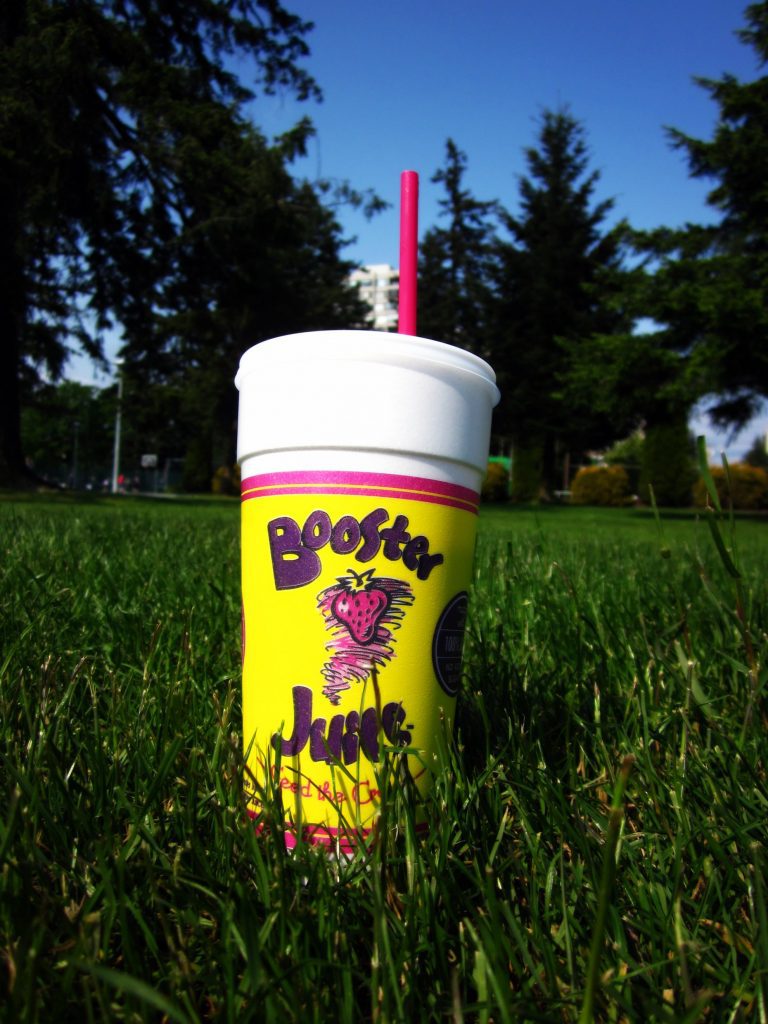
Booster Juice is on the wall for its greenwashing compostable plastic straw. There are currently no municipalities in Canada that accept compostable plastics, so these straws just end up in the garbage. Instead, it should commit to reducing the amount of plastic it generates, including promoting reusable options.
How the companies can move from the Wall of Shame to the Wall of Change
The good news for these companies is that they can get off the Wall of Shame.
If a company does the right thing and implements initiatives that actually reduce plastic, we will move them to all Wall of Change.
Here are a few actions that could be rewarded:
- Have a plastic reduction strategy that is transparent and with measurable targets;
- Start transitioning to reusable solutions (like real forks, knives and cups);
- Start charging customers for single-use products (so they will choose reusable ones)
- Support laws that work in keeping plastic out of the environment such as Deposit Return Programs and high collection targets that make producers accountable for the waste they generate.
We want companies to know that they need to get serious about dealing with the plastic waste they make. We will be adding new companies each month to the Wall of Shame. If you come across a greenwashing practice that involves plastics, let us know by visiting environmentaldefence.ca/wallofshame and filling out the nomination form.



